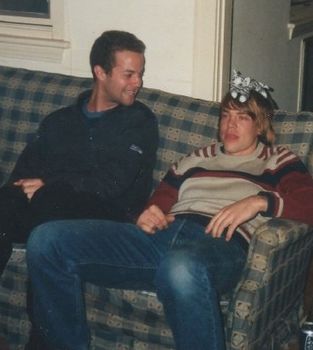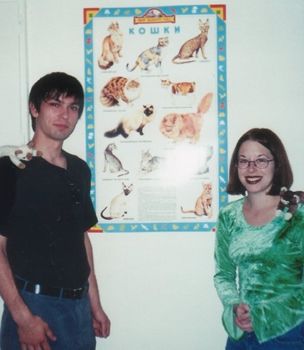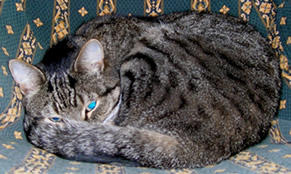I am almost halfway through the roughly 600 page "Gulag" by Anne Applebaum. This is an amazing book, and I will definitely try to write more on it once I am finished. The history of the Russian Gulag system is unbelievable, as is the fact that the average educated American knows so little about it. (I actually thought I knew a good bit about the Gulag before I began reading this book; however, the knowledge I had of the Gulag system barely scrapes the surface of what is in this book.) Anyhow, last night I came across a passage that I found particularly striking, as it reminded me very much of an experience I had during my last trip to Russia. Here is the passage:
"General Gorbatov also describes how he sent an uncensored letter to his wife from inside a [gulag] transport train, using a method mentioned by many others. First he bought a pencil stub from one of the criminal prisoners:
'I gave the convict the tobacco, took the pencil from him and, as the train moved off again, wrote a letter on the cigarette paper, numbering each sheet. Next I made an envelope of the makhorka wrapper, and stuck it down with moistened bread. So that my letter should not be carried by the wind into the bushes beside the railway, I weighted it with a crust of bread which I tied on with threads pulled from my towel. Between the envelope and the crust, I slipped a ruble note and four cigarette papers, each with the message: would the finder of this envelope please stick on a stamp and post it. I sidled up to the window of our truck just as we were going through a big station and let the letter drop...'
Not long afterward, his wife received it."
Back in June 2005, I wrote a little on my other blog about the Kresty Prison in St. Petersburg. (I apologize to those of you who may have already read this segment.) This passage recounts an experience I had during my second trip to Russia back in 2000. Granted, this information is five years old, but there is definitely a similarity here:
My friends Alyosha (Russian) and Shannon (American) and I were walking along the Neva embankment (for those of you who don't know, the Neva is the river upon whose delta the city of St. Petersburg was built) when we walked past the Kresty Prison. I'd had no idea it was even there before that day. Alyosha explained a bit about the prison and its history... He said that this was the prison where alleged criminals were kept while they awaited trial... and that friends/family were not allowed to visit. He also said that the prison was incredibly overcrowded, and that tuberculosis was rampant within the facility. I don't know if that information is true or not though, but what really struck me was the people I witnessed standing outside of the prison along the embankment of the Neva. They were picking through what looked like trash along the sidewalk. We took a look ourselves, and discovered that the "trash" consisted of crude, homemade projectiles, sealed and weighted with a small chunk of bread, containing small notes to family members wedged inside, which had been launched from the tiny prison windows in the hopes that they would be found by loved ones. Some of the people found notes addressed to them, and were very excited. Others searched in vain, and wept. Some waved their arms towards the prison, spelling out Cyrillic letters in a charade-like form of communication; arms reached out through the tiny windows of the prison, spelling replies. The emotions I witnessed on that day were so incredibly strong, and this is one of the most poignant memories of my seven months in Russia.
"General Gorbatov also describes how he sent an uncensored letter to his wife from inside a [gulag] transport train, using a method mentioned by many others. First he bought a pencil stub from one of the criminal prisoners:
'I gave the convict the tobacco, took the pencil from him and, as the train moved off again, wrote a letter on the cigarette paper, numbering each sheet. Next I made an envelope of the makhorka wrapper, and stuck it down with moistened bread. So that my letter should not be carried by the wind into the bushes beside the railway, I weighted it with a crust of bread which I tied on with threads pulled from my towel. Between the envelope and the crust, I slipped a ruble note and four cigarette papers, each with the message: would the finder of this envelope please stick on a stamp and post it. I sidled up to the window of our truck just as we were going through a big station and let the letter drop...'
Not long afterward, his wife received it."
Back in June 2005, I wrote a little on my other blog about the Kresty Prison in St. Petersburg. (I apologize to those of you who may have already read this segment.) This passage recounts an experience I had during my second trip to Russia back in 2000. Granted, this information is five years old, but there is definitely a similarity here:
My friends Alyosha (Russian) and Shannon (American) and I were walking along the Neva embankment (for those of you who don't know, the Neva is the river upon whose delta the city of St. Petersburg was built) when we walked past the Kresty Prison. I'd had no idea it was even there before that day. Alyosha explained a bit about the prison and its history... He said that this was the prison where alleged criminals were kept while they awaited trial... and that friends/family were not allowed to visit. He also said that the prison was incredibly overcrowded, and that tuberculosis was rampant within the facility. I don't know if that information is true or not though, but what really struck me was the people I witnessed standing outside of the prison along the embankment of the Neva. They were picking through what looked like trash along the sidewalk. We took a look ourselves, and discovered that the "trash" consisted of crude, homemade projectiles, sealed and weighted with a small chunk of bread, containing small notes to family members wedged inside, which had been launched from the tiny prison windows in the hopes that they would be found by loved ones. Some of the people found notes addressed to them, and were very excited. Others searched in vain, and wept. Some waved their arms towards the prison, spelling out Cyrillic letters in a charade-like form of communication; arms reached out through the tiny windows of the prison, spelling replies. The emotions I witnessed on that day were so incredibly strong, and this is one of the most poignant memories of my seven months in Russia.














